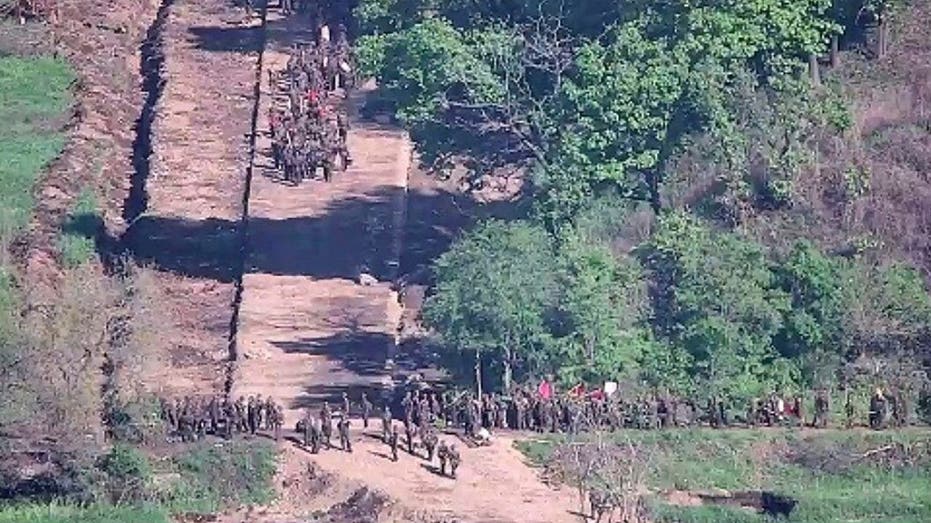Dozens of North Korean soldiers repeatedly breach forbidden zone with South Korea ahead of Putin visit
Dozens of North Korean soldiers have crossed into the demilitarized zone that separates the communist dictatorship and South Korea, breaching the no-go zone multiple times this month.

The North Korean military has breached the demilitarized zone (DMZ) separating the communist nation from South Korea multiple times this month.
North Korean soldiers were spotted inside the DMZ on Tuesday morning, apparently laboring on a project in the forbidden area.
South Korean military officials published photos of the incursion by North Korean troops around 8:30 a.m., who the Joint Chiefs of Staff say were carrying work tools.
PUTIN TO VISIT KIM JONG UN AS MILITARY COOPERATION BETWEEN RUSSIA AND NORTH KOREA INCREASES
South Korean soldiers fired warning shots to spook the North Koreans, who scattered and re-entered their own borders.
Approximately 20 to 30 North Koreans are believed to have entered the DMZ during the incident.
A similar incursion into the DMZ was reported earlier this month, when a large group of North Korean soldiers crossed into the forbidden area on June 9.
A TIMELINE OF RUSSIA-NORTH KOREA RELATIONS AHEAD OF PUTIN'S MEETING WITH KIM JONG UN
The June 9 incident caused a similar outcry from South Korean guards, who broadcast warning messages and fired warning shots until the interlopers fled the area.
These interactions have heightened tensions between the two Koreas just as North Korean leader Kim Jong Un is expected to host Russian President Vladimir Putin this week.
Putin is set to visit Pyongyang for two days beginning on Tuesday as he conducts his first official state visit to the communist nation in 24 years.
Russia has kept the much smaller and economically fragile North Korea as an ally as Western powers unleashed burdensome sanctions over the invasion of Ukraine.
North Korea has, in the past few years, served as a valuable middleman for Russia and China by conducting business and manufacturing operations outside the view of international law.



